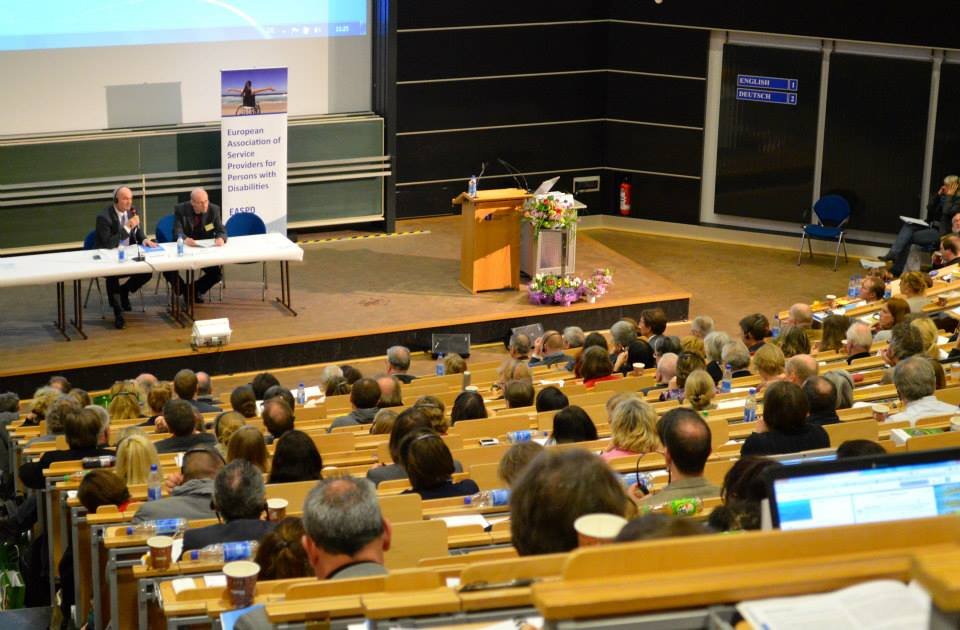The Centre for Planning and Evaluation of Social Services of the University of Siegen and the European Association of Service Providers for persons with Disabilities (EASPD) hosted the Conference “Planning Inclusive Communities: Challenges and strategies of Local Implementation of the UN Convention on the Rights of Persons with Disabilities” held on 27 and 28 of March 2014.
The conference offered the possibility to discuss the complex questions of implementation of the UN Convention on the Rights of persons with Disabilities (UNCRPD) in a planning perspective with an extraordinary competent ‘community of experts’ representing a great variety of social sectors and European countries. Such a discourse is an inclusive challenging by itself. We are aware that situations in the various countries differ widely because of different political paths and different material conditions. But we are convinced that the focus on the municipality allows to identify common problems and to develop, exchange and even transfer effective strategies from one region to another. The conference therefore had the purpose to enable scientific and professional exchange, but also to provide options and space for national and European networking of participants in regard to their implementation efforts of UNCRPD in their municipality at home. Especially in southern and eastern European countries the economic crisis and austerity politics have led to deep cuts in services for persons with disabilities, sometimes in dimensions that violate their basic human rights. Often, this resulted in severe difficulties for service organizations.
In order to contribute to the process of diffusion of local implementation processes of the UNCRPD the conference focused on diverse concepts and practices available in various fields of social life. The development of effective pathways to inclusive communities based on political responsibility, active citizenship, and stakeholder participation were also discussed. A special attention was given to the role of service providers in the building of inclusive environment for all and the challenges they face in this process. The conference provided opportunities for the different stakeholders to exchange experiences, as well as to present innovative local planning instruments and a wide range of examples of inclusive practices in rural and urban regions. Conference elements like ‘market of possibilities’ and ‘open forums’ offered participants with possibilities to bring in their own experiences and give options for regional, national and European networking.
During the conference, EASPD held regular meetings of its standing committees, the Board and the General Assembly. Also the initial meeting of the Early Intervention working group of EASPD was held. Vasilka Dimoska MD, Program Manager of PORAKA was appointed as chair person of the group. This is of significant importance for PORAKA considering that one of the priority programme tasks for 2013 is creating an early intervention service in Macedonia. Moreover, it offers opportunities for furthering the cooperation with partner organizations from Europe in order to adapt and transfer early intervention models in Macedonia.






